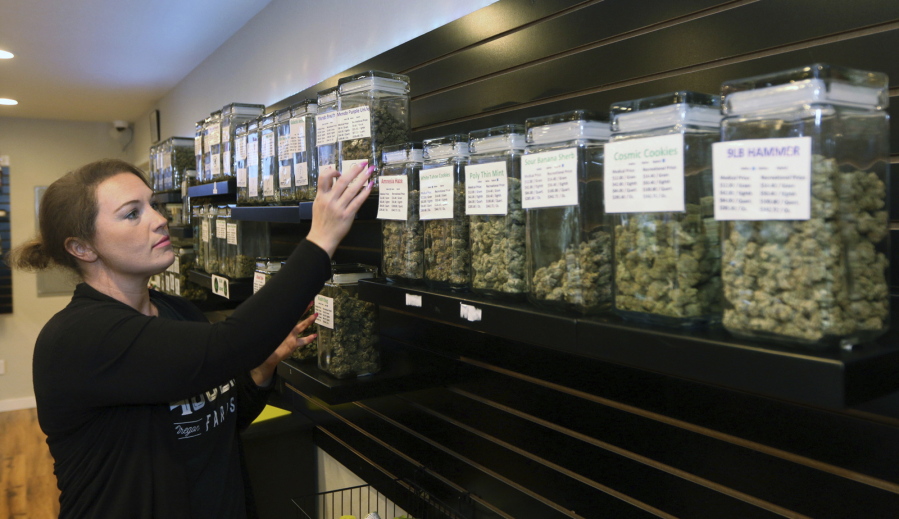GRANTS PASS, Ore. — Medical marijuana patients and growers in Josephine County and across the state are abandoning the Oregon Medical Marijuana Program.
Long considered a source of Oregon’s black market, medical marijuana is fast falling victim to a combination of red tape and a different kind of market force: the convenience of recreational retail sales.
“Medical could officially have a gravestone,” said Kit Doyle, who formerly sold medical marijuana but switched to hemp products through his business, the Murphy Hemp Company.
The number of patients registered with the OMMP is half of what it was a year ago. Statewide it dropped 41 percent, from 59,137 to 34,892. In the county it was almost 50 percent — from 7,027 to 3,540.
The number of registered growers also dropped precipitously. Statewide it went from 23,175 to 13,959 — 40 percent. In the county, it went from 2,957 to 1,668 — a 44 percent drop. Doyle and several industry watchers think the numbers will continue to go down, according to The Daily Courier.
Medical marijuana has been legal in Oregon since 1998, when voters created a system that allowed registered persons to grow their own marijuana — or obtain it from someone who grew it for them.
But even as the state Legislature took steps to allow dispensaries for medical marijuana, a sea change occurred in 2014, when voters legalized recreational marijuana, allowing retail sales to anyone over 21 and setting up commercial production.
It also allows people to grow up to four recreational plants with no registration requirements, except where prohibited by local statute, such as within the city limits of Grants Pass.
To feed those outlets, the state issued licenses to approved growers and operators.
As of this week, there have been 475 applications to grow, process, sell or test marijuana in Josephine County for the retail market. Reflecting the region’s conducive-to-cannabis climate, the vast majority, 399, were for recreational farms.
Medical marijuana patients who buy at retail dispensaries are able to avoid sale taxes that can reach 20 percent, although they must pay an annual $200 application fee to be an OMMP-registered patient.
The hassle of having to pony up $200 for the annual application fee — and the proliferation of dispensaries selling recreational pot — appears to be a factor in the decline.
“I repeatedly hear from customers,” said Diana Calvert of River City Retail marijuana dispensary in Merlin. “They say, ‘I let my medical card expire. It’s too expensive to renew. I’ll just pay the taxes.’ ”
Or, as Rob Bovett, who helped write the new rules as legal counsel for the Association of Oregon Counties, put it:
“Those that were getting an OMMP card as a ruse to get marijuana for recreational purposes … no longer need to continue the ruse after we legalized recreational marijuana.”
Those who remain OMMP patients include heavy users and those who live in an apartment or other location where they can’t grow their own. For those patients who rely on a grower, finding one can be difficult because their numbers are diminishing, patient advocates say.
“The regulations around providing for other patients are quite onerous,” said Cedar Grey, a Williams-area grower who sits on the Oregon Cannabis Commission, a state advisory body. “I actually think that’s the biggest factor.
“Many patients are just unable to find a grower to supply them. Previously I think it was relatively easy for a patient who didn’t know anyone, in relatively short order, to find a grower to provide free or low-cost cannabis.
“With the changes they’ve made (to the OMMP program), it’s much more difficult to care for other patients. Therefore, the number of growers willing to do that has dropped significantly.”




